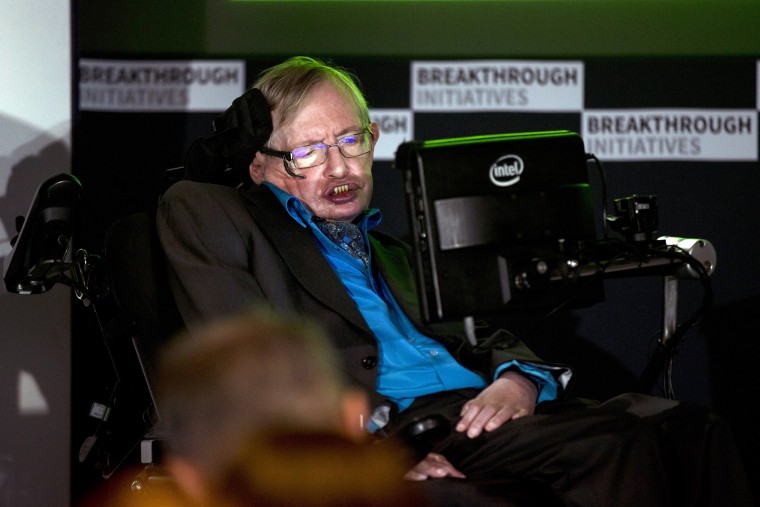Famed theoretical physicist Stephen Hawking doesn't think black holes are so inescapable after all.
"If you feel you are in a black hole, don't give up," he said in a lecture on Monday night in Stockholm, Sweden. "There's a way out."
He elaborated on his comments on Tuesday during a six-day conference at the KTH Royal Institute of Technology meant to explore the idea of "Hawking radiation" — essentially, radiation that is emitted by a black hole.
Theoretical physicists have long been puzzled over what happens to the information that composes matter when it goes into a black hole. The laws of quantum mechanics say that information can't be destroyed — and yet that information seems to be lost when a black hole eventually evaporates.
"I propose that the information is stored not in the interior of the black hole as one might expect, but in its boundary, the event horizon," he said on Tuesday.
RELATED: Stephen Hawking backs new initiative to find life beyond Earth
The event horizon is the point of no return for matter being drawn toward a black hole. According to Hawking, that border area is sort of like a holographic representation of the black hole where information is stored. When Hawking radiation is emitted, that information is carried away, meaning no information is truly lost.
"The information about in-going articles is returned, but in a chaotic and useless form," Hawking said. "This resolves the information paradox."
Not everyone will agree — scientists did, after all, come to the conference to share their own theories on Hawking radiation. But considering the source of the new theory, plenty of people will take it seriously.
This article originally appeared on NBCNews.com.
